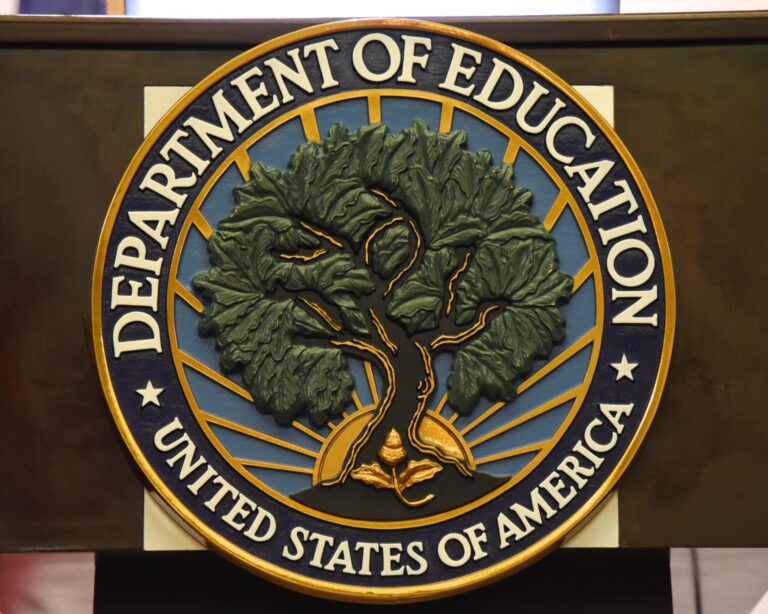The potential dismantling of the U.S. Department of Education has sparked intense debate across the nation, with Texas standing at the forefront of the discussion. As one of the largest states in terms of student population and education funding, Texas could face significant consequences if federal education oversight were reduced or eliminated. This article explores the key impacts Texas might suffer, including potential losses in federal aid, diminished regulatory guidance, and challenges in maintaining educational standards.
Education Funding and Resource Allocation at Risk in Texas
The proposed dismantling threatens to undercut millions in financial support designated for Texas’ public schools. Federal allocations that fund everything from special education programs to technology upgrades stand on uncertain ground, potentially widening the resource gap already felt by underserved districts. Without a centralized Education Department, the coordination and equitable distribution of these funds could falter, leaving many schools scrambling for alternative sources of revenue.
Beyond funding, critical resources such as teacher training, curriculum development, and student nutritional programs risk significant disruption. The absence of a governing education body could delay or dismantle initiatives designed to enhance academic quality and fairness. Below is a snapshot of key programs at risk should the administrative overhaul proceed:
| Program | Purpose | Impact of Funding Loss |
|---|---|---|
| Title I Grants | Support low-income schools | Increased dropout rates |
| IDEA Funding | Special education services | Reduced accessibility |
| School Lunch Programs | Student nutrition | Higher hunger risk |
| Teacher Development | Professional training | Quality decline in teaching |
- Disrupted funding cycles could delay payments critical to maintaining school operations.
- Loss of centralized leadership threatens policy consistency and oversight.
- Rural and economically disadvantaged areas stand to suffer the most from resource scarcity.
Potential Impact on Federal Support for Underserved Communities
The potential dismantling of the Education Department could drastically reduce federal funds directed towards programs that aim to close educational gaps in historically underserved communities across Texas. These programs have provided critical resources such as after-school tutoring, specialized curriculum development, and professional training for educators working in low-income districts. Without this support, many schools may struggle to maintain current levels of assistance, impacting student performance and long-term socioeconomic mobility.
Key areas likely to be affected include:
- Title I funding for schools with high percentages of disadvantaged students
- Grants for bilingual education and English language learner (ELL) programs
- Investments in special education services and accessibility
| Support Category | Texas Students Served | Potential Funding Cut (%) |
|---|---|---|
| Title I Grants | 1.5 million | 30% |
| Bilingual Education | 600,000 | 25% |
| Special Education | 400,000 | 20% |
Consequences for Accountability and Standards Enforcement
Without the presence of a centralized Education Department, Texas risks a significant decline in its ability to hold schools and districts accountable for student performance and compliance with state and federal guidelines. The loss of standardized oversight could lead to discrepancies in educational quality, leaving some districts without sufficient guidance or consequences for underperformance. This would not only affect student outcomes but also erode public trust in the state’s commitment to educational equity.
Key areas vulnerable to weakening enforcement include:
- Assessment and reporting: States may lose coordinated data collection efforts, making it difficult to track progress consistently.
- Intervention programs: Schools struggling with low ratings might not receive timely support or targeted interventions.
- Compliance monitoring: Federal requirements linked to funding could be harder to enforce, risking the withdrawal of critical resources.
| Accountability Component | Potential Impact |
|---|---|
| Statewide Testing | Reduced uniformity and reliability of results |
| District Ratings | Inconsistent standards could confuse parents and policymakers |
| Federal Compliance | Risk of losing federal funding tied to educational outcomes |
Recommendations for Maintaining Federal Collaboration and Oversight
To safeguard educational standards and ensure equitable outcomes across all Texas school districts, it is essential to preserve strong federal collaboration paired with vigilant oversight. State education agencies, in partnership with the federal government, rely on shared data systems and compliance frameworks that help identify achievement gaps and allocate resources effectively. Without these collaborative checks, critical issues such as funding disparities and compliance with civil rights protections may go unnoticed, widening achievement inequalities.
Implementing robust mechanisms for ongoing communication and accountability can prevent systemic erosion. Key actions include:
- Regular joint reviews of educational program effectiveness to maintain transparency and adaptability
- Federal grants monitoring to ensure funds are used with integrity and aligned to state goals
- Enhanced reporting standards to track student outcomes, especially among marginalized groups
| Collaborative Element | Benefit for Texas Education |
|---|---|
| Data Sharing Agreements | Timely identification of achievement gaps |
| Federal Program Audits | Transparent resource allocation |
| Joint Policy Workshops | Aligned state-federal reform strategies |
Insights and Conclusions
As discussions continue over the future of the U.S. Department of Education, Texas faces uncertain implications that extend beyond federal funding. The potential dismantling of the department threatens to disrupt key programs that support equity, accountability, and resource allocation statewide. With millions of students relying on federal guidelines and aid, the stakes remain high for Texas’ educational landscape. Policymakers and stakeholders alike will need to carefully weigh the consequences as the debate unfolds, mindful of the lasting impact on the state’s schools, educators, and students.




